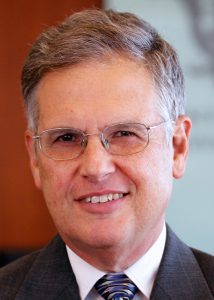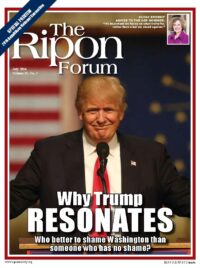 Recent vice presidential selections have blended tradition and novelty. Presidential candidates usually follow similar selection procedures and criteria. Yet each selection presents different options, in a different context, considered by a unique selector. These factors always introduce variation amidst continuity. The 2016 Republican vice presidential candidate remains uncertain but the selection process will probably be unique even as it honors certain patterns.
Recent vice presidential selections have blended tradition and novelty. Presidential candidates usually follow similar selection procedures and criteria. Yet each selection presents different options, in a different context, considered by a unique selector. These factors always introduce variation amidst continuity. The 2016 Republican vice presidential candidate remains uncertain but the selection process will probably be unique even as it honors certain patterns.
Vice presidential selection changed in 1976. The move to presidential primaries and caucuses resolved presidential nominations earlier (although not on the Republican side that year) and created a pre-convention vice presidential selection period of weeks to months. Intensive vice presidential vetting preceded the convention (including by President Gerald R. Ford in 1976) and most candidates engaged an experienced lawyer to scrutinize prospective running mates and report either to the presidential candidate or a small circle of trusted advisers. As the second office became more important and as a vice-presidential debate became a standard campaign feature, most presidential candidates recognized that choosing a presidential running mate was politically wise. Ticket-balancing diminished but did not disappear.
Recent Republican vice presidential selections have followed several patterns. With one exception, Republican presidential candidates have chosen plausible presidents as their running mates. These include Senator Bob Dole, Ambassador George H.W. Bush, Senator Dan Quayle, former Secretary (of HUD) Jack Kemp, former Secretary (of Defense) Dick Cheney, and Representative Paul Ryan. The one exception was Senator John McCain’s choice of Governor Sarah Palin; with less than two years in high governmental office, her experience was far less than any running mate since Governor Spiro T. Agnew and she soon proved a campaign liability. Other Republican vice presidential nominees have had considerable experience in high governmental positions: Bush (10), Quayle (12), Ryan (14), Cheney (16), Dole (16) and Kemp (22).
Republican presidential candidates who are D.C. outsiders always choose D.C. insiders.
Republican presidential candidates who are D.C. outsiders always choose D.C. insiders. Thus Governors Ronald Reagan, George W. Bush and Mitt Romney chose George H.W. Bush, Cheney and Ryan respectively. Not since 1948 has an outsider (Governor Tom Dewey) run with another outsider (Governor Earl Warren).
Republican vice presidential candidates generally are chosen in large part from, or to placate, the more conservative wing of the party. That tendency holds true for every selection since 1976 except Bush who Reagan, the conservative icon of the 20th century, chose. It also explains every selection from 1952 to 1976 except Henry Cabot Lodge, Richard M. Nixon’s 1960 choice at a time when Nixon’s conservative credentials were not contested.
Donald Trump, this year’s presumptive nominee, has followed past practice by engaging A.B. Culvahouse, a respected Republican lawyer, to again vet prospective running mates (although Trump’s process was somewhat erratic in initially suggesting that Dr. Ben Carson, then Corey Lewandowski, would be heavily involved in the process, decisions soon reversed).
In other respects, Trump faces challenges which may cause deviation from these past patterns. Whereas few Republican luminaries have declined to be considered for the second spot in recent years, Governors John Kasich, Nikki Haley, Susana Martinez, and Rick Scott and Senators Marco Rubio and Rob Portman are among the otherwise plausible running mates who have come close to issuing Shermanesque statements this year. Senator John Thune has publicly wondered whether being Trump’s running mate would be a good option for many potential candidates. Trump accordingly starts off with some “A” and “B” listers apparently removing themselves from consideration.
As the first presumptive presidential nominee since Wendell Willkie in 1940 without experience holding public office, Trump, appears the consummate political outsider.
Whereas prior Republican nominees have reached out to opponents — Ford chose Dole partly based on Reagan’s recommendation, Reagan courted Ford and Bush, and Dole chose Kemp even after the latter endorsed Steve Forbes when Dole’s nomination was a done deal — Trump has publicly criticized leading Republicans and has made statements which many, including some vice-presidential possibilities, have denounced.
As the first presumptive presidential nominee since Wendell Willkie in 1940 without experience holding public office, Trump appears the consummate political outsider. Past practice would suggest he would seek someone with experience in Congress and/or the national executive branch and who would compensate for his lack of a national security credential.
Trump has some apparent options, like former presidential candidates Newt Gingrich and Governor Chris Christie, Governors Mary Fallin and Mike Pence, Senator Jeff Sessions, and perhaps Senators Tom Cotton and Joni Ernst, among others. But Gingrich and Christie carry baggage, Sessions has never been considered a national candidate, Ernst has less experience than any recent nominee other than Palin, Cotton just a touch more, and Fallin helps little with the national security imperative.
Whereas past nominees used the second spot to energize the right, Trump has critics among Senator Ted Cruz’s supporters but also among establishment Republicans. The second spot will not mend all his fences.
The most unusual Republican presidential candidate in recent history thus faces a challenging context with constricted options, all of which may introduce even more novelty into 2016.
Joel K. Goldstein is the Vincent C. Immel Professor of Law at Saint Louis University School of Law. He is also the author of The White House Vice Presidency: The Path to Significance, Mondale to Biden (Kansas, 2016).




